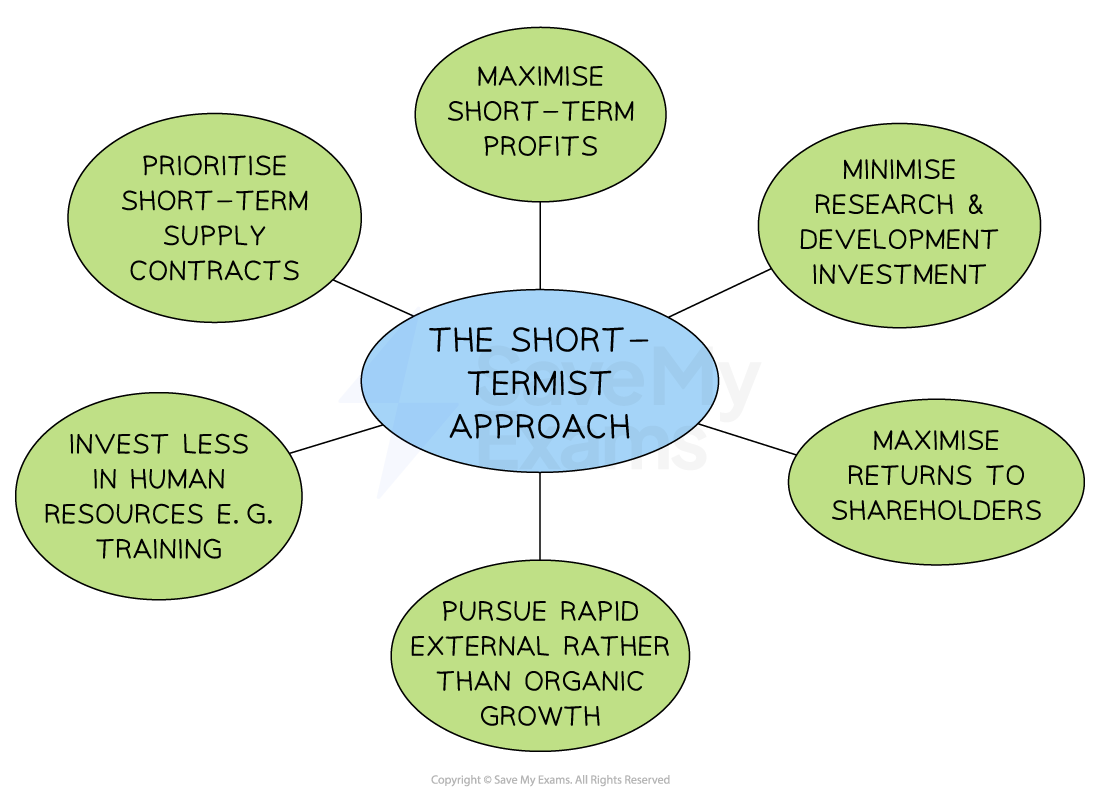Corporate Timescales: Short-termism Versus Long-termism
- Business decisions can have long-term and short-term implications
- Long-term decisions are likely to affect the long-term mission and vision of the business over a period of anything up to ten years
- Short-term decisions are more likely to impact on objectives and tactics over the next few years at most
- Many businesses focus on decision-making for the short-term
-
- This is especially influenced by pay structures, e.g. where executives' pay is linked to short-term success such as increase in the share price

Strategies likely to be adopted by a business with a short-termist approach to decision-making
- Businesses that adopt a short-termist approach may face a range of problems
- Loss of profitability and competitive edge as lucrative long-term opportunities are ignored in favour of short-term priorities
- The need to produce and analyse very regular financial reports means that managers lack time to consider longer-term corporate strategic direction
- Reliance on short-term contracts with suppliers and workers is likely to lead to higher than necessary costs as benefits such as bulk buying discounts cannot be achieved
- It is argued that short-termism is an entrenched feature in British businesses and some commentators consider that it is a key reason for sluggish productivity and a lack of willingness to invest in research, training and skills
- Some businesses are more likely to engage in those activities that will allow them to take advantage of opportunities that improve productivity and provide a competitive edge in the future
- This long-term approach may include a business
-
- Conducting ongoing investment in research and development, innovation and new product development
- Adopting a long-term outlook with less emphasis on frequent financial reporting
- Valuing and investing significant resources into the recruitment, training and retention of staff
- Establishing and nurturing meaningful and lasting relationships with suppliers


